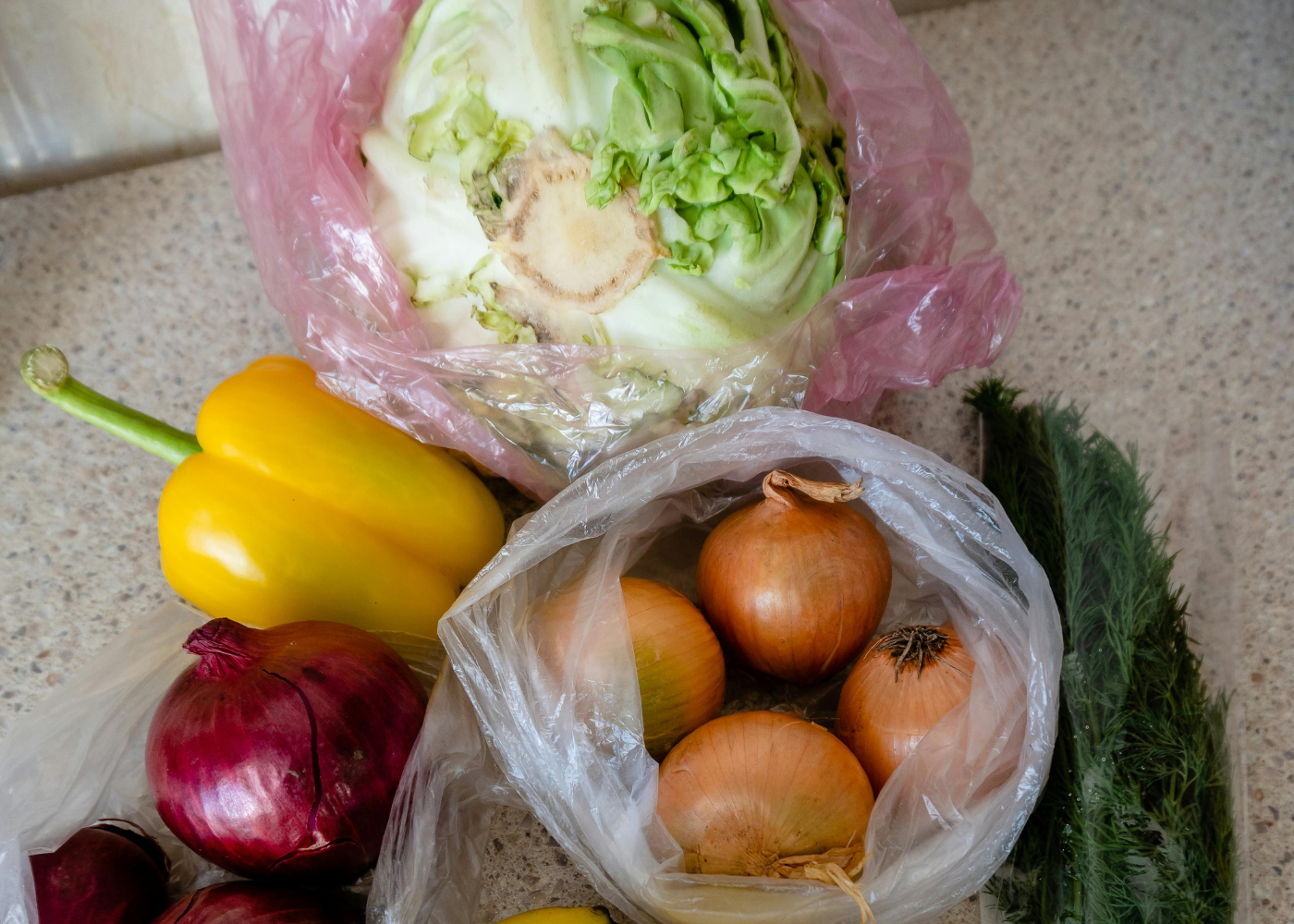Did you know that every European produces an average of 173 kilograms of packaging waste every year? Much of this is generated in the kitchen - from plastic packaging for food to disposable products such as cling film or plastic bags. But there is good news: even with small changes in your everyday life, you can avoid packaging waste and make an important contribution to a more sustainable world.
Here are 7 simple ideas to help you reduce packaging waste in your kitchen – including tips on how your Everleaf indoor garden can help.
1. Shop locally and use reusable containers
A large part of the packaging waste is caused by the transport of food. Supermarkets often pack fruit, vegetables and other products in plastic to make them last longer. The solution? Buy locally at weekly markets or farm shops. Many suppliers let you bring your own containers - this way you avoid unnecessary packaging.
💡 Tip: Reusable fruit and vegetable nets are an environmentally friendly alternative to plastic bags. They are lightweight, durable and available in many stores.
2. Grow your own instead of buying
Growing your own herbs, salads or vegetables not only saves packaging waste, but also the CO₂ emissions that arise during transport. With an indoor garden like the Everleaf Garden, you can harvest all year round - without plastic trays, without cling film.
🌱 Advantage: The Everleaf Garden works without soil and waters your plants automatically, making it particularly easy to care for. Whether you plant basil, lettuce or tomatoes - you only harvest what you need and avoid food waste at the same time.

3. Storage containers and jars instead of disposable packaging
Instead of storing food in plastic bags or disposable packaging, invest in durable storage containers made of glass, stainless steel or BPA-free plastic. These are perfect for dry foods like pasta, rice or oatmeal.
💡 Tip: Old jam or preserving jars are great for reusing. Not only do they look pretty, they are also practical for everyday use.
4. Prefer packaging-free alternatives
More and more supermarkets and shops offer the option of buying products without packaging. From nuts to spices to liquids such as oil or vinegar: bring your own containers and only buy the quantities you actually need.
🛒 Tip: Look for a packaging-free store near you. These stores often have a wide selection of food and household products without disposable packaging.
5. Plastic-free kitchen utensils
Many kitchen utensils, such as sponges, dishwashing brushes or cling film, are made of plastic. But there are sustainable alternatives:
• Beeswax cloths: The perfect alternative to cling film. They are reusable and ideal for covering food.
• Coconut fiber sponges: Durable dishwashing sponges without microplastics.
• Wooden brushes: Plastic-free dish brushes that are biodegradable.
6. Meal prep instead of ready-made products
Ready-made products are often heavily packaged - from frozen pizzas in plastic wrap to microwave meals. With meal prep, you can drastically reduce your packaging waste. Cook larger portions in advance and store them in reusable containers.
🍅 Extra tip: Your Everleaf indoor garden provides you with the fresh ingredients you need for your dishes – unpackaged, regional and always at hand.
7. Avoid disposable products
Single-use products such as plastic bags, drinking straws or disposable coffee cups are real packaging waste sins. Replace them with sustainable alternatives such as:
• Reusable coffee cups: perfect for on the go.
• Cloth napkins: washable and reusable.
• Stainless steel drinking straws: For smoothies, cocktails or your iced coffee.

Why reducing packaging waste is so important
Most packaging waste ends up in landfills or in our oceans, where it takes centuries to decompose. Microplastics end up in our soil, our water and ultimately our food chain. By avoiding packaging waste, you are not only protecting the environment, but also your health.
Conclusion: Your contribution counts!
Every step counts to reduce packaging waste - whether it's through your own indoor garden, bringing reusable containers or using plastic-free alternatives. With the Everleaf Garden, you can not only grow fresh, unpackaged food, but also make an important contribution to sustainability.
💡 Discover now: Start your own indoor garden with Everleaf today and make your everyday life more sustainable! 🌱
